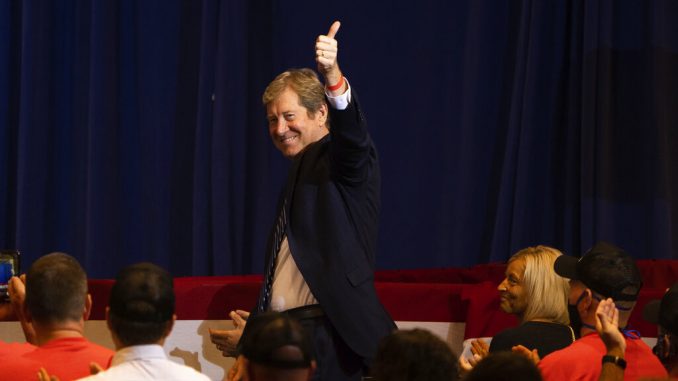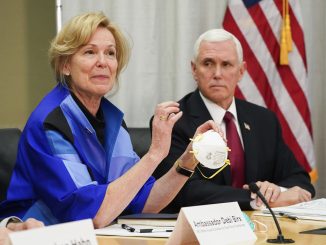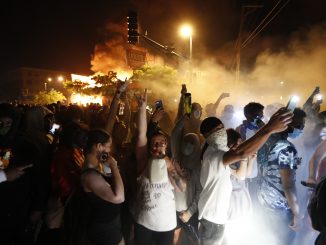
MINNEAPOLIS — A federal judge on Wednesday rejected a challenge by Republican U.S. Senate candidate Jason Lewis to Minnesota’s coronavirus restrictions, turning aside the former congressman’s arguments that the rules unconstitutionally limit his freedom to campaign.
U.S. District Judge Donovan Frank ruled that Democratic Gov. Tim Walz acted within his authority to respond to the public health crisis when he imposed restrictions on crowd sizes, travel and other measures meant to slow the spread of the coronavirus, which has infected over 99,000 Minnesotans and killed more than 2,000.
Some of those restrictions already have been relaxed or rescinded, the judge noted. He said Lewis had failed to show that his rights were improperly violated and dismissed the lawsuit with prejudice, meaning Lewis can’t file it again.
“The restrictions were put in place to slow the spread of COVID-19, a highly infectious disease that spreads easily by person-to-person transmission,” Frank wrote. “The restrictions are clearly related to public health as there are serious health risks associated with COVID-19, a lack of available vaccine or treatment, and a need to reduce the likelihood of overburdening Minnesota’s medical resources.”
Lewis, a conservative former talk radio host who served one term in the U.S. House before losing in 2018, is trying to unseat Democratic U.S. Sen. Tina Smith. He’s been campaigning against the state’s coronavirus restrictions since the early days of the pandemic. He said he plans to appeal and make the ruling an issue in the race.
“I’m hardly surprised at the judge’s dismissal, though sadly for Minnesotans who still have to endure these lockdowns, these unconstitutional orders have been struck down in other states,” Lewis said in a statement. “Nevertheless, you haven’t heard the last from us on this issue. This is why federal judgeships are so important and why the election of U.S. Senators who confirm them is as well.”
As a practical matter, the restrictions don’t appear to have really limited Lewis’ campaigning. He has spent much of the last several weeks campaigning across the state and has appeared at rallies and other events with President Donald Trump and Vice President Mike Pence where compliance with the governor’s social distancing, face mask and crowd size orders has been spotty at best. Lewis also worked the crowd at an anti-shutdown rally outside the governor’s official residence in April.
Attorney General Keith Ellison, whose office represented Walz in the lawsuit, criticized Lewis for filing it.
“More than 200,000 Americans have died from COVID-19 and 7 million have been infected. Governor Walz has met the moment by using his power to keep Minnesotans safe,” Ellison said in a statement.
“One would think that someone seeking to represent the people of Minnesota would be focused on how to save the lives of Minnesotans,” he continued.
Ellison’s office said 15 legal challenges have been filed against the governor’s use of emergency powers to respond to the pandemic, and that his office has prevailed in all seven that have reached a resolution. Defending against those lawsuits has cost taxpayers $230,000 and the office 1,750 staff hours as of Sept. 15, the statement said.



